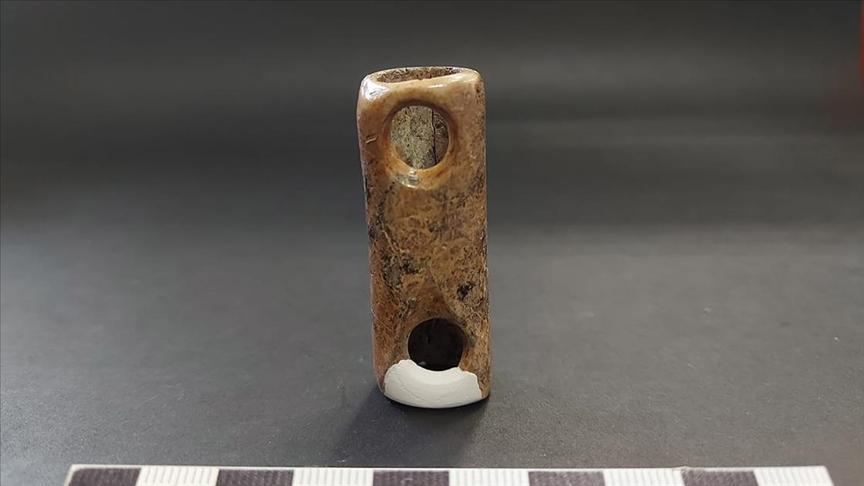Prehistoric Music of Anatolia: The Secret of the 8,600-Year-Old Flute

As you travel deep into history, sometimes the most fascinating secrets can be hidden in unexpected places and objects. The discoveries made during the Bilecik Bahçelievler excavation revealed exactly such a secret: an 8,600-year-old flute.
This enormous flute is an extremely rare musical instrument in Anatolia and has only three holes. This flute, considered one of the oldest musical instruments of Western Anatolia, is ready to fascinate its visitors at Bilecik Archeology Museum. Imagining the melodies of thousands of years ago could not be as impressive an experience as standing next to this unique instrument.
However, it is not just the flute, there are many other fascinating discoveries offered by the Bahçelievler excavation. Human skeletons, ceramic vessels, bone tools, chipped stone finds and terracotta artifacts dating back 8,500 years ago were also unearthed in this excavation area. These bear traces of the life of that period and give us important clues about the lives and cultures of the people of that period.
In addition, many seeds from the prehistoric period were found during the excavations. Seeds such as einkorn wheat, emmer wheat, barley, lentils and buckwheat show how early these people adopted agriculture. The Bahçelievler excavation indicates that animal domestication, as well as agriculture in the region, began in this period.
Assoc. Prof., who is the head of the excavation team. Dr. Erkan Fidan states that these discoveries reveal traces of villages dating back thousands of years and shed light on the history of Anatolia of this period. These excavations not only unravel the mysteries of the past, but also help us better understand the rich and complex history of Anatolia. With future excavations and research, we hope to learn more details of this fascinating past.







